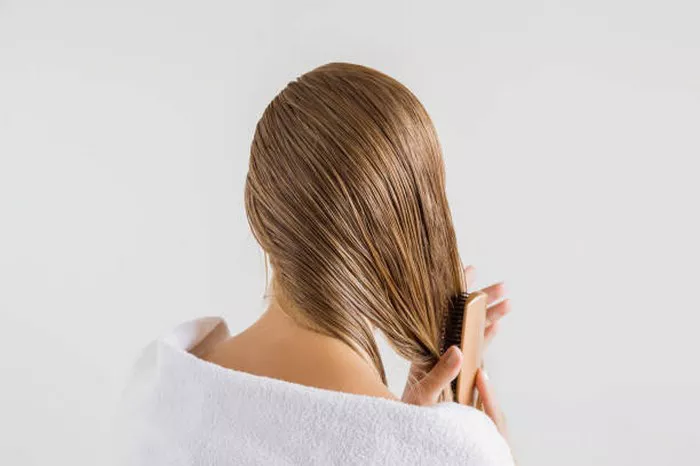Hair is more than just a part of your look—it’s a living structure that needs care to stay healthy. Just like your skin, your hair can become dry, brittle, or frizzy without proper moisture. This is where moisturizers come in. A hair moisturizer is a product designed to add and lock in moisture, keeping your hair soft, strong, and shiny. In this essay, we’ll explore how moisturizers work, why your hair needs them, and how to use them effectively.
Understanding Hair Structure
To grasp why moisture matters, let’s start with the basics of hair structure. Each strand has three layers:
The Cuticle: This is the outer layer, like shingles on a roof. Healthy cuticles lie flat, protecting the inner layers. When damaged, they lift, causing frizz and moisture loss.
The Cortex: Beneath the cuticle, this layer contains proteins (like keratin) and water. It gives hair its strength, elasticity, and color.
The Medulla: The innermost layer, which doesn’t play a big role in moisture.
Hair naturally loses moisture through daily wear and tear. Without enough hydration, the cortex weakens, and the cuticle becomes rough. Moisturizers help repair this damage by replenishing water and sealing the cuticle.
Why Hair Gets Dry
Many factors strip moisture from hair:
- Heat Styling: Blow dryers, straighteners, and curling irons evaporate water from strands.
- Chemical Treatments: Coloring, perming, or relaxing hair breaks down proteins and opens the cuticle.
- Environment: Sun, wind, and dry air pull moisture away. Chlorine and saltwater also dry hair out.
- Poor Care Habits: Washing too often, using harsh shampoos, or brushing roughly can damage hair.
When hair loses moisture, it becomes stiff, tangled, and prone to breakage. Dry hair also looks dull because rough cuticles scatter light instead of reflecting it.
What Is a Hair Moisturizer?
A moisturizer is any product that adds water to hair or prevents it from escaping. Unlike conditioners, which mainly smooth the cuticle, moisturizers focus on hydration. They often contain:
- Humectants (e.g., glycerin, honey): Attract water from the air.
- Emollients (e.g., oils, shea butter): Coat hair to lock in moisture.
- Proteins (e.g., keratin): Repair gaps in the cuticle.
- Natural Oils (e.g., coconut, argan): Nourish and add shine.
Think of moisturizers as a drink of water for your hair, followed by a protective blanket.
How Moisturizers Work
Humectants Pull in Moisture: Ingredients like aloe vera act like magnets for water. They’re great in humid climates but can backfire in dry areas by pulling moisture from hair into the air.
Emollients Smooth and Seal: Oils and butters fill gaps between cuticles, creating a barrier. This reduces frizz and stops moisture from escaping.
Proteins Strengthen: Tiny protein particles patch up damaged areas in the cuticle, making hair less likely to break.
Oils Nourish: Lightweight oils (e.g., jojoba) absorb quickly, while heavier ones (e.g., castor oil) provide deep conditioning.
Benefits of Moisturizing
Prevents Breakage: Hydrated hair bends instead of snapping. This is crucial for long hair or chemically treated strands.
Boosts Elasticity: Moisturizers help hair stretch (e.g., when brushing) without damage.
Reduces Frizz: Smooth cuticles lay flat, so hair looks sleek.
Adds Shine: Reflective, smooth hair catches the light better.
Improves Manageability: Moisturized hair is easier to detangle and style.
Protects Against Damage: Moisturizers with heat-protectant ingredients shield hair from tools like flat irons.
Choosing the Right Moisturizer
Your hair type determines what product to use:
- Curly/Coily Hair: Thick creams or butters (e.g., shea butter) combat extreme dryness.
- Fine/Straight Hair: Lightweight sprays or serums avoid weighing hair down.
- Color-Treated Hair: Moisturizers with UV filters prevent fading.
- Damaged Hair: Protein-rich products repair split ends temporarily (though trimming is still essential).
Always check ingredients. Avoid alcohols (e.g., ethanol), which dry hair out, and opt for natural oils if possible.
How to Apply Moisturizer
- Start Clean: Use a sulfate-free shampoo to avoid stripping natural oils.
- Damp Hair Works Best: Apply to towel-dried hair so moisture absorbs evenly.
- Focus on Ends: The oldest part of your hair needs the most care. Avoid roots if your scalp is oily.
- Use Heat Wisely: For deep treatments, cover hair with a warm towel to open cuticles.
- Don’t Overdo It: A pea-sized amount is enough for most hair types.
Common Mistakes
- Over-Moisturizing: Too much product causes buildup, making hair greasy or limp.
- Ignoring Protein Balance: Hair needs both moisture and protein. Over-moisturized hair becomes mushy.
- Using the Wrong Product: Heavy butters on fine hair lead to flatness.
- Skipping Clarifying: Residue blocks moisture. Use a clarifying shampoo monthly.
Seasonal and Lifestyle Tips
- Winter: Indoor heating dries hair. Use richer moisturizers.
- Summer: Protect against UV rays with leave-in conditioners.
- Swimmers: Rinse hair before swimming and use a chelating shampoo to remove chlorine.
Conclusion
Moisturizers are vital for maintaining healthy, beautiful hair. They hydrate, protect, and repair damage caused by daily life. By understanding your hair’s needs and choosing the right products, you can prevent dryness, enhance shine, and keep your hair strong. Remember: consistency is key. Make moisturizing a regular part of your routine, and your hair will thank you!
Related topics:
10 Tips to Help You Use Wild Growth Light Oil Moisturizer
What is Moisturizer for Hair? A Comprehensive Guide
What Does Moisturizer Do for Hair? Unlocking Hydration


